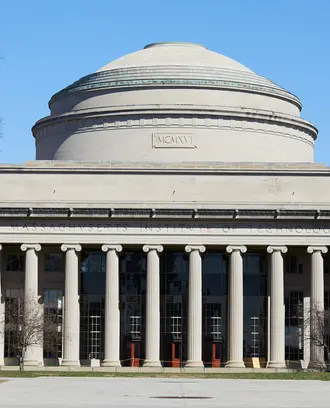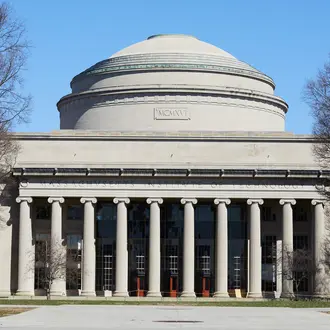Damien Green is VP, Front Office Technology and Project Management at Tudor Investment Corporation and a member of the MIT Executive MBA Class of 2025.
Note: The following interview was edited for clarity.
Why did you decide to pursue an MBA at the point of your career that you did, and why did you choose the MIT EMBA?
Damien Green, EMBA '25
One of the things I wanted to do was expand my domain of expertise. I’ve had a fairly long career and built up a level of success and goodwill within the financial services industry. I wanted to take that next step to hone those skills and think of things more strategically so I could lead transformational change at the enterprise level.
When I looked at the MIT EMBA, the one thing that stuck out to me was the intense focus on Action Learning. Being able to take things you learn in class on the Friday and Saturday sessions and literally go sandbox, practice, and try it out at work in your own domain on a Monday has been a cool and exciting experience.
You have a background working with analytics. How has the program helped enhance or reinforce your use of analytics?
The program challenged me to think critically about the context in which data is being used, who the stakeholders are, and what decisions they need to make. The program has helped me to not just put my focus on building the perfect dashboard or model, but instead, to place importance on asking the right questions upfront, understanding the system dynamics at play, and then using that information to design a solution that is rightly aligned with the strategic objectives of the stakeholder.
Think of a leadership challenge you faced before the MIT EMBA. How would you approach it differently now?
One of the biggest leadership challenges I faced before the MIT EMBA was managing various change initiatives and navigating resistance to that change from stakeholders. In the past, I’d say that my approach to dealing with this challenge was very inconsistent and reactive. I relied heavily on logic, data, and persuasion to convince others of why a change was necessary. This approach often failed to address the underlying concerns or motivations of the people affected. The EMBA program has helped me develop a more strategic and human-centered approach. I now focus on understanding stakeholders’ goals and incentives and use methods like stakeholder mapping to identify key advocates within my network who can help champion the change. This allows me to tailor my approach more effectively and build early momentum by engaging those with influence and alignment.
I’ve also adopted a systems-thinking mindset, which helps me see how different parts of the organization interconnect and how change impacts them holistically. Rather than pushing change from the top down, I prioritize collaboration and shared ownership. My goal is to bring people along in the process. This shift has helped me become not just a more effective leader of change, but a more empathetic one as well.
What’s something about the MIT EMBA you didn't expect before enrolling?
The depth of the innovation ecosystem. I’ve never really worked in the entrepreneurial or startup space at all. A big eye opener for me was how rich the culture of entrepreneurship is here. I always expected the program to be rigorous and challenging, but what really energized me was seeing the richness of the innovation ecosystem.
Being in this environment opened my eyes to entirely new possibilities for making transformational change, not only within my current organization, but potentially beyond it. The exposure to entrepreneurial thinking and innovative frameworks has awakened a real appetite to explore paths I hadn’t previously considered, and it’s made me more open to stepping outside my comfort zone to pursue new ideas.
How would you describe the MIT EMBA community?
The community is made up of some of the most humble, curious, and mission-driven people I’ve ever met. I know those can sound like buzzwords, but they genuinely reflect what stood out to me. Everyone in the program is accomplished in their own way – leaders in their respective fields – but what really impressed me was how grounded and generous they are with their time, knowledge and experiences.
There is a strong culture of shared learning. The sense I get every time I step foot on campus is that we’re here not just to grow as individuals, but to lift others up as well. This has also challenged me to be more intentional in how I show up for others – not only focusing on my own success but actively thinking about how I can help someone else succeed. Even in challenging moments, whether personal or professional, I’ve witnessed members of the community step up without hesitation to support one another. That spirit of collaboration and generosity is something I intend to carry forward in my own leadership journey.
What piece of advice would you give to a prospective student?
Come in with an open mind and a willingness to challenge yourself. The program will push you outside of your comfort zone – but in a good way. Don’t wait for the “perfect” moment to share an idea or pursue something that you’re passionate about. If you’re excited about something, put it out there and invite feedback because this community is a safe space. Be ready to challenge your own assumptions – and just as importantly, be open to having them challenged by others. That’s where real growth happens.



